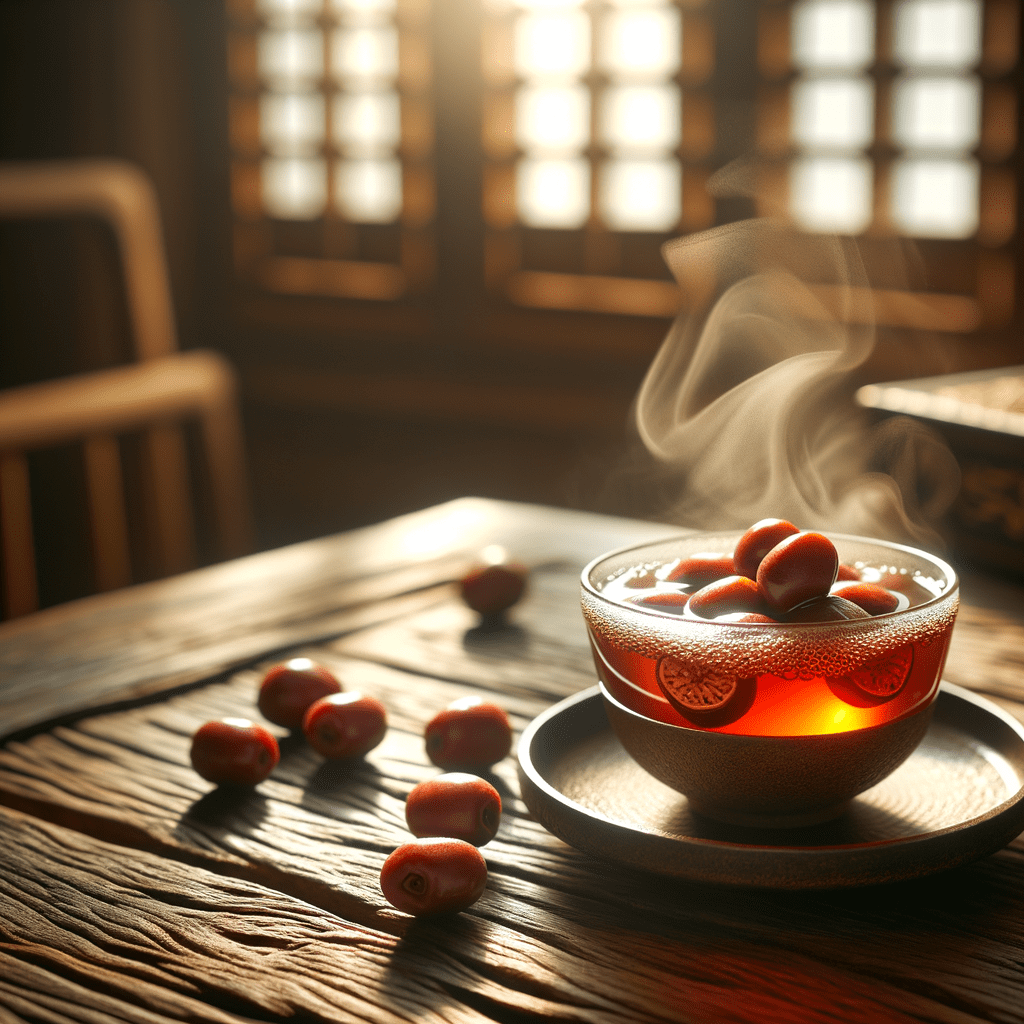🍵 Introduction to Daechu Cha
Daechu Cha, also known as Jujube Tea, is a beloved Korean beverage that has warmed the hearts and homes of many for centuries. This delightful tea is made from jujubes, also known as red dates, which are not only sweet but packed with health benefits. If you’ve ever sipped on a cup of this aromatic tea, you’ll know why it’s a staple in Korean cuisine and culture. Let’s dive into the origins, recipe, regional features, taste profile, and cultural significance of this delightful drink. 🌿
🌍 The Origin of Daechu Cha
The history of Daechu Cha is deeply rooted in Korean tradition. Jujubes have been cultivated in Korea for over 4,000 years and have been used in various traditional medicines and culinary recipes. Originally grown in the southern regions of Korea, these fruits were prized for their sweet flavor and medicinal properties. The practice of making tea from jujubes likely began as a way to harness these benefits in a comforting beverage form.
📜 Recipe and Regional Features
The recipe for Daechu Cha is simple yet rich in flavor. To make this tea, dried jujubes are simmered in water until they release their natural sweetness. Some variations may include additional ingredients like ginger or cinnamon to enhance the flavor profile. The tea is then strained and served hot or cold, depending on preference.
Regionally, Daechu Cha can vary slightly. In the southern parts of Korea where jujubes are most abundant, the tea might be sweeter with more pronounced fruit flavors. In contrast, northern variations might incorporate more spices to combat the colder climate.
🍯 Taste Profile and Cultural Significance
The taste profile of Daechu Cha is both sweet and soothing. The natural sugars from the jujubes provide a gentle sweetness that is complemented by any added spices like ginger or cinnamon. This makes it not only a delicious treat but also a comforting remedy during cold seasons.
Culturally, Daechu Cha holds significant importance in Korean society. It is often served during traditional ceremonies and family gatherings as a symbol of warmth and hospitality. Additionally, due to its health benefits—such as boosting immunity and aiding digestion—it is frequently consumed as a wellness drink.
🎉 Conclusion
Daechu Cha is more than just a tea; it’s a cultural experience that embodies the warmth and richness of Korean tradition. Whether enjoyed for its taste or its health benefits, this jujube tea remains an integral part of Korean culinary heritage. Have you ever tried Daechu Cha? What was your experience like? 🍂
#DaechuCha
